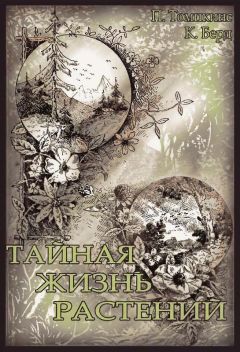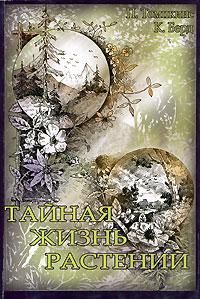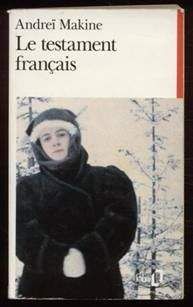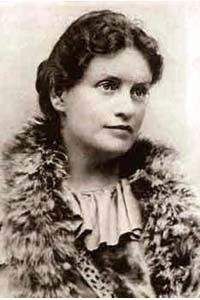Lawrence, L. George. “Biophysical AV Data Transfer.” AV Communication Review, vol. 15, no. 2, Summer 1967, pp. 143–152.
_____. “Interstellar Communications Signals.” Information Bulletin No. 72/6. San Bernardino, Calif. Ecola Institute.
_____. “Interstellar Communications: What are the Prospects?” Electronics World, Oct. 1971, pp. 34 ff.
_____. “Electronics and the Living Plant.” Electronics World, Oct. 1969, pp. 25–28.
_____. “Electronics and Parapsychology.” Electronics World, April, 1970, pp. 27–29.
_____. More Experiments in Electroculture.” Popular Electronics, June, 1971, pp. 63–68, 93.
_____. “Experimental Electro-Culture.” Popular Electronics, Feb. 1971.
Leadbeater, C. W. The Monad. Adyar, Madras, India: Theosophical Pub. House, 1947.
Lehrs, Ernst. Man or Matter. New York: Harper, 1958.
Lemstrom, Selim. Electricity in Agriculture and Horticulture. London: The Electrician Pub. Co., 1904.
Lepinte, Christian. Goethe et l'Occultisme. (Publications de la Faculte des Lettres de l'Universite de Strasbourg.) Paris: Societe d’Edition les Belles Lettres, 1957.
Lewis, Joseph. Burbank the Infidel. New York: Freethought Press Assn., 1930.
Linne, Carl von. Flower Calendar. Stockholm: Fabel, 1963.
_____. Reflections on the Study of Nature. Dublin: L. White, 1784.
Loehr, Rev. Franklin. The Power of Prayer on Plants. New York: Signet Books, 1969.
Luce, G. G. Biological Rhythms in Psychiatry and Medicine. U.S. Public Health Service Pub. No. 2088, 1970.
Lund, E. J. Bioelectric Fields and Growth. Austin: University of Texas Press, 1947.
Lyalin, O., and Pasiehngi, A. P. “Comparative Study of Bioelectric Response of a Plant Leaf to Action of CO and Light/’ Agrophysics Research Institute, V.I. Lenin All-Union Academy of Agricultural Sciences, Leningrad. Bulletin issued by the Institute of Plant Physiology, Academy of Sciences of the Ukrainian SSR, Kiev, Mar. 6, 1969.
Mackay, R. S. Bio-Medical Telemetry. New York: John Wiley, 1970.
Magnus, Rudolf. Goethe as a Scientist. New York: H. Schuman, 1949.
Manber, David. Wizard of Tuskegee. New York: Crowell-Collier, 1967.
Mann, W. Edward. Orgone, Reich and Eros. New York: Simon & Schuster, 1973.
Marha, Karel; Musil, Jan; and Tuha, Hana. Electromagnetic Fields and the Life Environment San Francisco: San Francisco Press, 1971.
Marine, Gene, and Van Allen, Judith. Food Pollution: The Violation of our Inner Ecology. New York: Holt, Rinehart & Winston, 1972.
Markson, Ralph. “Tree Potentials and External Factors,” in Burr, H. S., Blueprint for Immortality: The Electric Patterns of Life. London: Neville Spearman, 1972, pp. 166–184.
Martin, Richard. “Be Kind to Plants — Or You Could Cause a Violet to Shrink.” The Wall Street Journal, Jan. 28, 1972, pp. 1, 10.
Matveyev, M. “Conversation with Plants.” Nedelya. Weekend supplement of Izvestia, no. 17, April 17, 1972 (in Russian).
McCarrison, Sir Robert. Nutrition and National Health. London: Faber & Faber Ltd, 1944.
McCraw, Walter. “Plants Are Only Human.” Argosy, June 1969, pp. 24–27.
Merkulov, A. “Sensory Organs in the Plant Kingdom” Nauka i Religiya (Science and Religion), no. 7, 1972, pp. 36–37, in Russian.
Mermet, Abbe. Principles and Practice of Radiesthesia. New York: Thomas Nelson, 1935-59.
Mesmer, Franz Anton. Le Magnetisme Animal. Paris: Payot, 1971.
_____. Memoir of F. A. Mesmer, Doctor of Medicine, on His Discoveries. Mt. Vernon, N.Y.: Eden Press, 1957.
Messegue, Maurice. C’est la Nature qui a Raison. Paris. R. Laffont, 1972.
_____. Cherches et tu Trouveras. Paris: La Passerelle, 1953.
_____. Des Hommes et des Plantes. Paris: R. Laffont, 1970.
Meyer, Warren. “Man-and-Plant Communication: Interview with Marcel Vogel” Unity, vol. 153, no. 1, Jan. 1973, pp. 9-12.
Miller, Robert N. “The Positive Effect of Prayer on Plants” Psychic, vol. 3, no. 5, Mar.-Apr. 1972, pp. 24–25.
Milne, Lorus and Margery. The Nature of Plants. Philadelphia: J. B. Lippincott, 1971.
Mind and Matter. (Quarterly periodical.) Oxford, England: The De La Warr Laboratories.
Mitchell, Henry. “Spread a Little Sunshine and Love and Reap Sanity from Plants That Really Care,” The Washington Post, July 1,1973, pp. G1, G4.
Morgan, Alfred P. The Pageant of Electricity. New York- D. Appleton Century Co., 1939.
Mother Earth. Journal of the Soil Association, London.
Murr, L. E. “Physiological Stimulation of Plants Using Delayed and Regulated Electric Field Environments.” International Journal of Biometeorology, vol. 10, no. 2, pp. 147-53.
“Mechanism of Plant-Cell Damage in an Electrostatic Field.” Nature, vol. 201, no. 4926, March 28, 1964.
Naumov, E. K., and Vilenskaya, L. V. Soviet Bibliography on Parapsychology (Psychoenergetics) and Related Subjects, Moscow, 1971. Translated from Russian by the Joint Publications Research Service, JPRS No. 55557, Washington, D.C., May 28, 1972, 101 pp.
Natural Food and Farming. (Monthly journal.) Atlanta, Texas: Natural Food Associates.
Neiman, V. B. (ed.). Problems of Transmutations in Nature: Concentration and Dissipation. (Collection of papers.) In Russian. Erevan, Armenia, USSR: Aiastan Pub. House, 1971.
Nicholson, Shirley J. “ESP in Plants,” American Theosophist, pp. 155–158.
Nichols, J. D. Please Doctor, Do Something! Atlanta, Texas: Natural Food Associates, 1972.
Nollet, M. L’Abbe. Recherches sur les Causes Particulieres des Phenomenes Electriques. Paris, 1754.
_____. Lettres sur LElectricite. 1753.
Norman, A. G. “The Uniqueness of Plants.” American Scientist, vol. 50, no. 3, Autumn 1962, p. 436.
Northern, Henry and Rebecca. Ingenious Kingdom. Englewood Cliffs, N.J.: Prentice-Hall, 1970.
Obolensky, George. “Stimulation of Plant Growth by Ultrasonic Waves.” Radio-Electronics, July 1953.
O'Donnell, John P. “Thought as Energy.” Science of Mind, July 1973, pp. 18–24.
Old and New Plant Lore. Smithsonian Scientific Series. New York: Smithsonian Institution Series, Inc., 1931.
Organic Gardening and Farming. (Monthly journal.) Emmaus, Pa.: Rodale Press.
Osborn, Fairfield. Our Plundered Planet Boston: Little, Brown, 1948.
The Osteopathic Physician, Oct. 1972 (special issue devoted to Kirlian photography and bioenergetics).
Ostrander, Sheila, and Schroeder, Lynn. Psychic Discoveries Behind the Iron Curtain. New York: Bantam Books, 1970.
Ott, John N. My Ivory Cellar — The Story of Time-Lapse Photography. Selfpublished, 1958.
_____. Health and Light — The Effects of Natural and Artificial Light on Man and Other Living Things. Old Greenwich, Conn.: Devin-Adair, 1973.
Paracelsus. Sdmtliche Werke von Theophrast von Hohenheim gen. Paracelsus. 20 vols. Munich: R. Oldenbourg, 1922-65.
Parasnis, D. S. Magnetism. London: Hutchison, 1961.
Parker, Dana C., and Wolff, Michael F. “Remote Sensing.” International Science and Technology, July 1965.
Payne, Alan. “ ‘Secret Life of Plants' Revealed by Biologist.” Performance, vol. 1, no. 41, Mar. 29, 1973.
Pekin, L. B. Darwin. New York: Stackpole Sons, 1938.
Pelt, Jean-Marie. Evolution et Sexuality des Plantes. Paris: Horizons de France, 1970.
Perkins, Eric. The Original Concepts of the Late Dr. Albert Abrams. A lecture delivered to the Radionic Association, March 17, 1956. Burford, Oxon, England: Radionic Association.
Pfeffer, Wilhelm. Pflanzenphysiologie. Leipzig: W. Engelmann, 1881.
Pfeiffer, Ehrenfried. The Compost Manufacturer’s Manual. Philadelphia: Pfeiffer Foundation, 1956.
_____. Sensitive Crystalization Processes: A Demonstration of Formative Forces in the Blood. Dresden: E. Weises Buchhandlung, 1936.
_____. The Earth’s Face and Human Destiny. Emmaus, Pa.: Rodale Press, 1947.
_____. Formative Forces in Crystalization New York. Anthroposophic Press, 1936.
_____. Practical Guide to the Use of the Bio-Dynamic Preparations. London. R. Steiner Pub Co, 1945.
_____. Weeds and What They Tell Bio-Dynamic Farming and Gardening Association, Inc.
Philbrick, Helen, and Gregg, Richard. Companion Plants and How to Use Them. Old Greenwich, Conn.: Devin-Adair Co., 1966.
Philbrick, John and Helen. The Bug Book: Harmless Insect Controls. Selfpublished, 1963.
Picton, Lionel James. Nutrition and the Soil: Thoughts on Feeding. New York: Devin-Adair, 1949.
Pierrakos, John C. The Energy Field in Man and Nature. New York: Institute of Bioenergetic Analysis, 1971.
Pressman, A. S. Electromagnetic Fields and Life. New York and London: Plenum Press, 1970.
Priestley, Joseph. The History and Present State of Electricity with Original Experiments. London, 1767.
Pringsheim, Peter, and Vogel, Marcel. Luminescence of Liquids and Solids and Its Practical Application. New York: Interscience Pubs., 1943.
Preuss, Wilhelm H. “Aus ‘Geist und StoflF,’ die Arbeiten von Herzeles,” in Hauschka, Rudolf, Substanzlehre, V. Klosterman, Frankfurt am Main, 1942.
Prevention' The Magazine for Better Health. (Monthly journal.) Emmaus, Pa.: The Rodale Press.
Puharich, Andrija. The Sacred Mushroom: Key to the Door of Eternity. Garden City, N.Y.: Doubleday, 1959.
_____. Beyond Telepathy. London: Darton, Longman and Todd, 1962.
Pullen, Alice Muriel. Despite the Colour Bar. London: S.C.M. Press Ltd., 1946.
Pushkin, V. N. “Flower Recall/' Znaniya Sila, Nov. 1972, in Russian.
Rahn, Otto. Invisible Radiations of Organisms. Berlin: Gebriider Borntraeger, 1936.
Ravitz, L. J. “Periodic Changes in Electromagnetic Fields,” Annals, New York Academy of Sciences, vol. 46, 1972, pp. 22–30.
Regnault, Jules Emile J. Les Methodes d Abrams. Paris: N. Maloine,1927.
Reich, Wilhelm. The Discovery of the Orgone: Volume I, The Function of the Orgasm, Sex-Economic Problems of Biological Energy. New York: Orgone Inst. Press, 1942.
_____. The Discovery of the Orgone: Volume II, The Cancer Biopathy. New York: Orgone Inst. Press, 1948.
Reichenbach, Karl L. F., Freiherr von. The Odic Force; Letters on Od and Magnetism. New Hyde Park, N.Y.: University Books, 1968.
_____. Physico-Physiological Researches on the Dynamics of Magnetism, Heat, Light, Electricity and Chemism, in Their Relations to Vital Force. New York: J. S. Redfield, 1851.
Retallack, Dorothy. The Sound of Music and Plants. Santa Monica, Calif.: De Vorss and Co., 1973.
Richards, Guyon. The Chain of Life. London: John Bale Sons and Danielsson Ltd., 1934.
Robbins, Janice and Charles. “Startling New Research from the Man Who Talks to Plants.” National Wildlife, vol. 9, no. 6, Oct.-Nov. 1971, pp. 21–24.
Rocard, Y. Le Signal du Sourcier. Paris: Dunod, 1963.
Rodale, J. I. The Healthy Hunzas. Emmaus, Pa.: Rodale Press, 1949.
Russell, Sir Edward John. ”The Soil as a Habitat for Life.” In Smithsonian Institution Annual Report 1962.
Russell, Walter B. The Russell Genero-Radiative Concept. New York: L. Middleditch, 1930.
_____. The Universal One. New York: Briefer Press, 1926.
_____. The Secret of Light. New York: Self-published, 1947.
Sanderson, Ivan T. ”The Backster Effect: Commentary.” Argosy, June 1969, p. 26.
Scott, Bruce I. H. ”Electricity in Plants.” Scientific American, Oct. 1962, pp. 107–115.
Scott, Cyril Meir. Music, Its Secret Influence Throughout the Ages. New York: S. Weiser, 1969.
Scott, G. Laughton. ”The Abrams Treatment,” in Practice; an Investigation. London: G. Bles, 1925.
Selsam, Millicent. Plants That Move. New York: Morrow, 1962.
_____. Plants That Heal. New York: Morrow, 1959.
Semenenko, A. D. ”Short Term Memory of Plants,” in Russian. Institute of Photosynthesis, Academy of Sciences of USSR and Timiryazev Academy, Inst, of Plant Physiology, Academy of Science of USSR, Nov. 1968.
Sergeyev, G. A. ”Principles of Mathematical Modulation of Bioplasmic Radiations of a Living Organism,” in Russian; in the anthology Voprosy Bioenergetiki, Kazakh State University, Alma Ata, USSR, 1969.
Shaffer, Ron. ”Your Plants May Be Perceptive,” The Washington Post, April 18, 1972.
Sherrington, Sir Charles Scott. Goethe on Nature and Science. Cambridge, England: Cambridge Univ. Press, 1942.
Simoneton, Andre. Radiations des Aliments, Ondes Humaines, et Sante. Paris: Le Courrier du Livre, 1971.
Singh, Т. C. N. ”On the Effect of Music and Dance on Plants.” Bihar Agricultural College Magazine, vol. 13, no. 1,1962-63, Sabour, Bhagalpur, India.
Sinyukhin, A. М., and Gorchakov, V. V. ”Role of the Vascular Bundles of the Stem in Long-Distance Transmission of Stimulation by Means of Bioelectric Impulses.” Soviet Plant Physiology, vol 15, no. 3, May-June 1968, pp. 477–487. In Russian.





